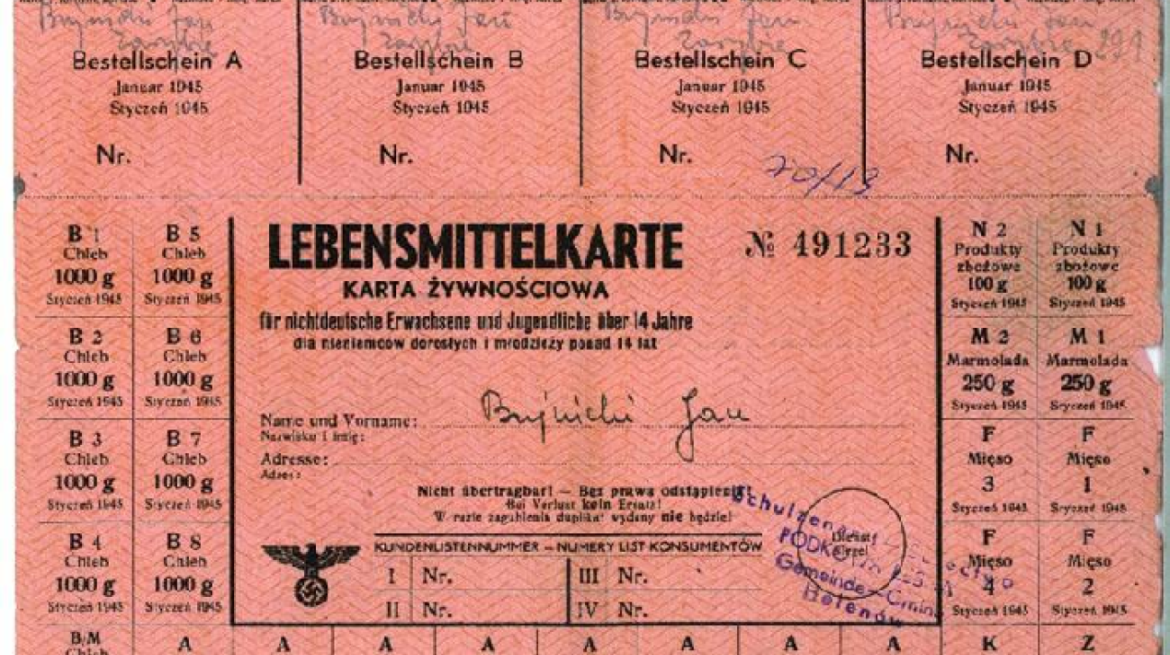The aim of German policy in the occupied Polish territories was the slow destruction of Polish society through, for instance, the induction of famine. Looted food was exported to the Third Reich.
In September 1940. Hans Frank, the Governor General stated: “It is impossible for us to give the Poles the standard of living of the Germans. There must be a difference between the standard of living of a nation of lords and its serfs”. These words were applied in the form of the food ration card system. It consisted of extreme limits on food for the Polish population. In 1941, the card requirements met only 26% of needs, and in the following years even less. In calories, the respective proportions for the three nations – Germans, Poles and Jews – were as follows: 100.5 for the former, 25.6 for the second and only 7.1 for the last group. This led to a severe starvation of the urban population. There was also an increased susceptibility to disease, especially epidemic typhus, and tuberculosis. German figures spoke of a 50-fold increase for the first of the diseases and a 35-fold increase for the second compared to the pre-war period.
The policy towards the peasants, on the other hand, was to force them to contribute large quotas of grain and cattle and other products. As a result, they also became poorer, unable to provide the urban agglomerations with sufficient food. In December 1942, two weeks before Christmas Hans Frank stated: “I shall attempt to extract from the reservoir of this area everything that can still be extracted”, adding that he had sent 240,000 tonnes of bread cereals and 300 million eggs from the General Government to the Third Reich.
The German ‘starvation’ policy was thuggish in nature and a typical Nazi display of lawlessness.





